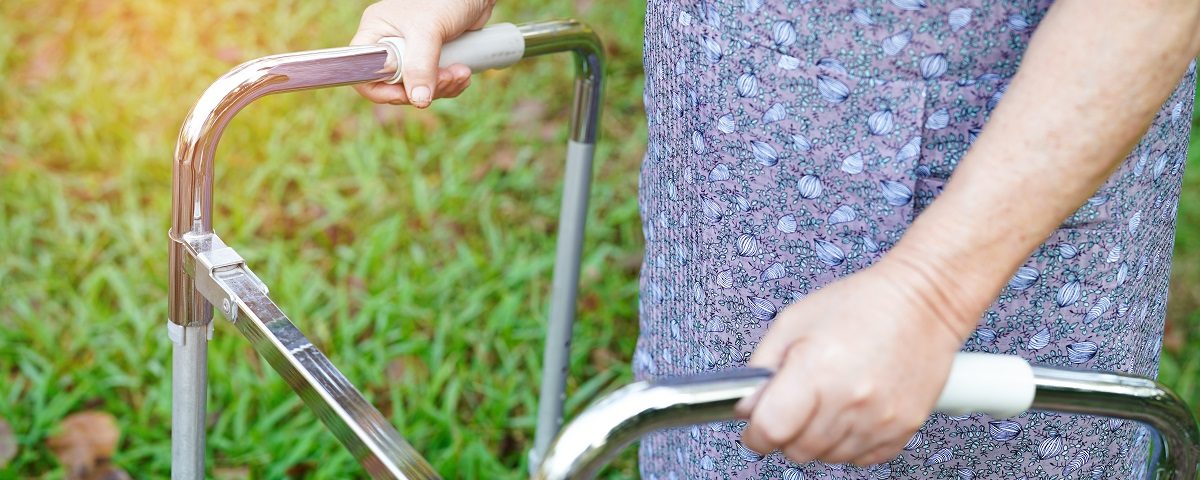Tips on preventing falls.

Online singing helps people living with Parkinson’s
6th April 2021
New medication to quickly reverse ‘off’ time
6th April 2021Tips on preventing falls.

Tips on preventing falls.
Falls are a common symptom of Parkinson’s and because everyone has a different journey they can be experienced at various stages of progression.
Depending on their severity and direction, falls can result in minor cuts and bruises at best and hospital admissions for serious or even life-threatening injuries at worst.
Common causes of falls by people living with Parkinson’s include:
- Reduced blood pressure – Postural hypotension. This is a condition where a person’s blood pressure falls resulting in dizziness:
- Moving from a laying or sitting position to a standing position quickly.
- As a side-effect of medication taken for Parkinson’s
- When on anti-hypertensives when no longer required
Postural hypotension can also be a pointer to a diagnosis of Parkinson’s.
- Freezing of gait – One of the most debilitating motor symptoms in people living with Parkinson’s disease. It describes lack of forward movement of the feet, despite an intention to walk. Feet feel as if they are stuck to the ground and this can happen suddenly.
- Short and/or shuffling steps caused by other motor symptoms such as stiff muscles, rigidity and slow movement – resulting in difficulty in taking normal steps.
- Tendency to lean forward – The single most common postural change seen in people living with Parkinson’s. It is caused by muscle rigidity, brain changes that control posture and/or dystonia (muscle twisting, spasm or cramp that can occur at different times of day).
- Environmental hazards – Furniture, fittings, decorations and floor surfaces around the home that can present a risk as people living with Parkinson’s move around.
Each of these issues can interfere with a person’s balance, resulting in a fall.
Although falls are more likely to occur and cause serious injury in later stages of Parkinson’s, they can occur at any stage of your progression.
If you have had a fall recently – or your falls are becoming more frequent – it is important to consult your GP and neurologist.
Changes to medication regimes can help in some cases, and you most likely will be referred to a physiotherapist and occupational therapist for assessment and treatment. These Allied Health professionals can also offer advice and strategies to help you avoid falling.
Here are some other useful tips to lower your risk of falling:
- If you suspect postural hypotension, visit your GP. They will monitor your blood pressure while sitting and standing.
- You can also do this at home, when you go from a sitting to a standing position you must wait for 2 minutes before taking your blood pressure to ensure accuracy.
- Also talk to your neurologist.
- Measures you can take at home include sitting on the edge of your bed for a while to wait for your blood pressure to stabilise before standing.
- If you are experiencing low blood pressure it may be useful to add salt to your diet and increase your fluid intake.
- Always take medications on time.
- Undertake regular exercise to help with balance and leg strength.
- Walk to a rhythm (listening to a beat or music can help).
- Focus on long steps when you are walking.
- Always keep at least one hand free. Try using a backpack to hold things rather than carrying them in your hands. Never carry objects in both hands when walking as this interferes with balance.
- Make a conscious effort to swing both arms from front to back while walking. This will help you to maintain balance and posture, and reduce fatigue.
- When trying to navigate turns, use a ‘U’ technique of facing forward and making a wide turn, rather than pivoting sharply.
- If you become ‘frozen’ visualise stepping over an imaginary object.
- Remove hazards in your home, such as mats, rugs or furniture that blocks walkways
Do you have questions about falls prevention? Call the Parkinson’s NSW InfoLine on 1800 644 189 and speak to one of our Parkinson’s Registered Nurses.



